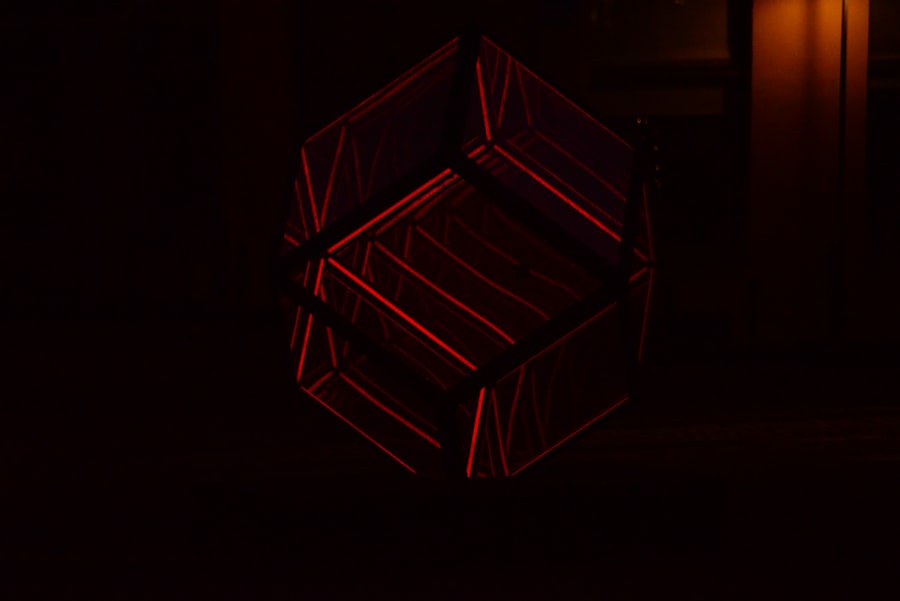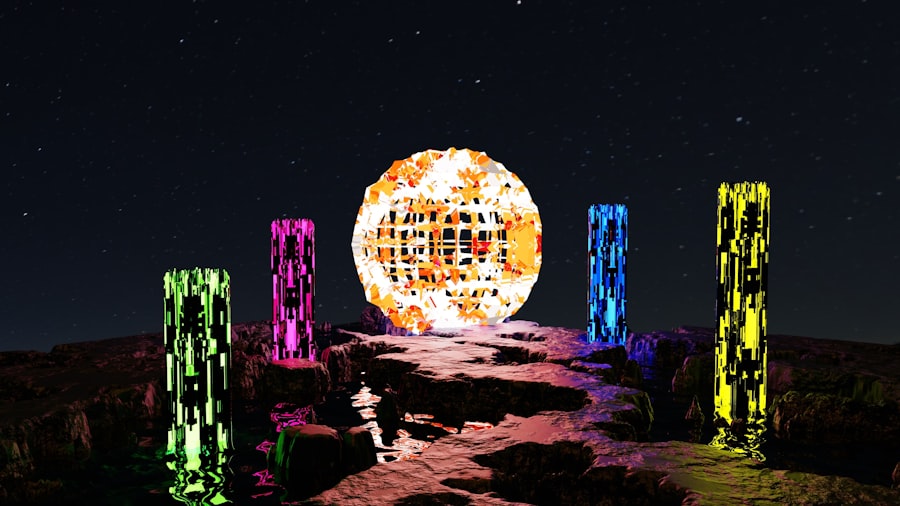The Block Universe Theory, also known as Eternalism, posits that time is not a flowing entity but rather a dimension similar to space. In this framework, all moments in time—past, present, and future—exist simultaneously in a four-dimensional spacetime continuum. This perspective challenges the conventional understanding of time as a linear progression, where the present moment is fleeting and the past is fixed while the future remains uncertain.
Instead, the Block Universe suggests that every event that has ever occurred or will occur is laid out in a vast, unchanging structure, akin to a block of ice containing all temporal moments.
According to the Block Universe, the universe can be visualized as a four-dimensional object where time is treated as another spatial dimension.
This radical rethinking of time invites profound questions about existence, reality, and the nature of human experience. It challenges individuals to reconsider their perceptions of life and the universe, suggesting that every moment is eternally present within the fabric of spacetime.
Key Takeaways
- The Block Universe Theory views time as a fixed dimension where past, present, and future coexist simultaneously.
- It challenges traditional notions of free will by suggesting all events are predetermined within the block.
- Quantum mechanics offers new insights that may reconcile the Block Universe with probabilistic events.
- The theory aligns with relativity, providing a unified framework for understanding time and space.
- Despite its scientific applications, the Block Universe raises significant philosophical and ethical questions.
Understanding the Concept of Time in the Block Universe
In the Block Universe, time is perceived as a static entity rather than a dynamic flow. This means that every event—whether it occurred millions of years ago or is yet to happen—exists in a fixed state within the spacetime continuum. The implications of this view are significant; it implies that the past is not merely a memory and the future is not merely a possibility but rather actualities that coexist with the present.
This perspective can be difficult to grasp, as it contradicts the intuitive understanding of time as something that moves forward. The concept of time in the Block Universe also raises questions about human perception and consciousness. If all moments exist simultaneously, then what does it mean for individuals who experience time sequentially?
The subjective experience of time may lead one to believe in a linear progression, yet from the Block Universe perspective, this experience is merely an illusion. The challenge lies in reconciling this philosophical viewpoint with everyday experiences, where individuals feel they are moving through time rather than existing within it.
The Implications of the Block Universe Theory on Free Will

One of the most contentious implications of the Block Universe Theory is its impact on the concept of free will. If all events are predetermined and exist simultaneously, then the notion of making choices becomes problematic. In this framework, every decision an individual makes is already part of the block, suggesting that free will may be an illusion.
This raises profound ethical and philosophical questions about responsibility and accountability for one’s actions. However, proponents of the Block Universe argue that free will can still exist within this framework.
This perspective allows for a nuanced understanding of free will, where choices are made within a predetermined structure but still hold significance for the individual experiencing them. The debate continues as philosophers and scientists grapple with reconciling free will with a deterministic universe.
Exploring the Relationship Between Past, Present, and Future in the Block Universe
| Aspect | Description | Metric/Example | Implication in Block Universe |
|---|---|---|---|
| Past | Events that have already occurred and are fixed in spacetime | Cosmic Microwave Background Radiation Age: ~13.8 billion years | Past events are as real and unchangeable as present and future |
| Present | The current moment experienced by an observer | Proper Time Interval: Instantaneous ‘now’ varies by observer’s frame | Present is relative and not absolute; no universal ‘now’ |
| Future | Events that have not yet occurred but exist in spacetime | Predicted Cosmic Events: e.g., star formation rates over next billion years | Future is predetermined and equally real in the block universe |
| Time Symmetry | Physical laws are invariant under time reversal | Time-Reversal Symmetry in fundamental physics | Supports the idea that past, present, and future coexist |
| Spacetime Coordinates | Four-dimensional coordinates representing events | Coordinates (x, y, z, t) define event location in block universe | All events are fixed points in spacetime block |
| Observer Dependence | Perception of time flow depends on observer’s frame of reference | Relativity of Simultaneity in Special Relativity | Challenges the notion of a universal present moment |
In the Block Universe, the relationship between past, present, and future is fundamentally different from traditional views. Rather than seeing these temporal states as distinct and separate, they are interconnected parts of a larger whole. The past is not lost; it exists alongside the present and future in a comprehensive tapestry of events.
This interconnectedness suggests that every moment influences others, creating a complex web of causality that transcends linear time. This perspective also invites reflection on how individuals relate to their own experiences. Memories of the past are not merely recollections but are part of an ongoing existence within the Block Universe.
Similarly, aspirations for the future are not just hopes but are also integral to the fabric of reality. This holistic view encourages individuals to consider their place within this continuum and how their actions resonate across time.
Quantum Mechanics and the Block Universe: A New Perspective
The intersection of quantum mechanics and the Block Universe Theory offers intriguing insights into the nature of reality. Quantum mechanics introduces concepts such as superposition and entanglement, which challenge classical notions of causality and locality. In light of these principles, some physicists propose that the Block Universe provides a framework for understanding quantum phenomena.
If all moments exist simultaneously, then quantum states may be seen as manifestations within this broader temporal landscape. This perspective allows for a re-evaluation of how events unfold at the quantum level. Rather than viewing particles as moving through time in a linear fashion, they can be understood as existing in multiple states simultaneously within the Block Universe.
This interpretation aligns with certain interpretations of quantum mechanics that suggest reality is not as straightforward as it appears. By integrating quantum mechanics with the Block Universe Theory, scientists may uncover new dimensions of understanding regarding both time and reality.
The Block Universe and the Arrow of Time

The concept of the arrow of time refers to the one-way directionality observed in physical processes—where events seem to progress from past to future. In classical physics, this arrow is often associated with entropy, where systems evolve from order to disorder over time. However, within the Block Universe framework, this arrow becomes more complex.
If all moments exist simultaneously, how does one reconcile this with the apparent flow of time? One approach to understanding this paradox is to consider how human perception interacts with entropy and temporal progression. While all moments may coexist in a static block, individuals experience change and evolution within their own timelines.
The arrow of time may thus be seen as a subjective experience rather than an objective feature of reality. This perspective invites further exploration into how consciousness perceives change and continuity within a universe where all moments are eternally present.
Time Travel and the Block Universe: Is it Possible?
The notion of time travel has long captivated human imagination, often depicted in science fiction narratives. Within the context of the Block Universe Theory, time travel takes on new dimensions. If all moments exist simultaneously, then theoretically, traveling to different points in time could be possible—provided one could navigate through this four-dimensional structure.
However, practical implications raise significant challenges. While theoretical models may suggest pathways through spacetime, actualizing time travel involves overcoming immense technological and physical barriers. Moreover, paradoxes associated with altering past events complicate discussions about time travel’s feasibility within this framework.
The Block Universe invites speculation about what it would mean to traverse time while acknowledging that such journeys may remain firmly within the realm of theoretical exploration.
The Block Universe and Relativity: A Unified Theory of Time and Space
The Block Universe Theory finds strong support in Einstein’s theory of relativity, which fundamentally altered humanity’s understanding of space and time. Relativity posits that time is relative to observers’ motion and gravitational fields, leading to phenomena such as time dilation. Within this context, the Block Universe emerges as a natural extension—suggesting that all events are woven together in a unified fabric where space and time are inseparable.
This synthesis offers profound implications for scientific inquiry and philosophical exploration alike. By viewing spacetime as a cohesive whole rather than separate entities, researchers can better understand complex phenomena such as black holes or cosmic expansion. The Block Universe serves as a conceptual framework that aligns with relativistic principles while challenging traditional notions about temporal progression.
The Philosophical and Ethical Implications of the Block Universe Theory
The philosophical ramifications of the Block Universe Theory extend far beyond theoretical physics; they touch upon ethics, morality, and human existence itself. If all moments exist simultaneously and are predetermined, what does this mean for concepts such as moral responsibility? Individuals may grapple with questions about accountability for actions if those actions are already part of an unchangeable timeline.
Moreover, this perspective invites deeper reflection on existential themes such as purpose and meaning. If life unfolds within a predetermined structure, individuals may find themselves questioning their significance within this vast cosmic tapestry. Yet proponents argue that meaning can still be derived from experiences within this framework; even if events are fixed, individuals can find value in their journey through existence.
Challenges and Criticisms of the Block Universe Theory
Despite its intriguing propositions, the Block Universe Theory faces significant challenges and criticisms from various quarters. One major critique centers around its implications for human experience; many argue that it undermines personal agency by suggesting that choices are illusory within a predetermined structure. This raises concerns about how individuals navigate their lives if they believe their paths are already set.
Additionally, critics point out that empirical evidence supporting Eternalism remains limited compared to alternative theories such as Presentism—the idea that only the present moment is real while past and future events do not exist in any tangible sense. The debate continues as philosophers and scientists engage in discussions about which framework best captures the complexities of time and existence.
Applications of the Block Universe Theory in Science and Technology
The applications of the Block Universe Theory extend beyond philosophical discourse into practical realms such as science and technology. In fields like cosmology and theoretical physics, understanding spacetime as a block can inform models related to black holes or cosmic inflation. By framing these phenomena within an Eternalist perspective, researchers may uncover new insights into fundamental questions about the universe’s origins and structure.
Moreover, advancements in technology could benefit from insights derived from this theory. For instance, developments in quantum computing may draw upon principles aligned with both quantum mechanics and Eternalism to create systems capable of processing information in ways previously thought impossible. As scientists continue to explore these intersections between theory and application, they may unlock new frontiers in understanding both time and reality itself.
In conclusion, while the Block Universe Theory presents profound implications for understanding time, existence, free will, and reality itself, it also invites ongoing debate among philosophers and scientists alike. As humanity continues its quest for knowledge about the universe’s nature, grappling with these concepts will undoubtedly shape future inquiries into both science and philosophy.
To gain a deeper understanding of the block universe concept, you might find it helpful to explore related discussions and insights. A particularly informative article can be found on Freaky Science, which delves into the implications of this theory on our perception of time and reality. You can read more about it in their article [here](https://www.freakyscience.com/).
WATCH THIS! The Future Is Already Written: Why Physics Says Time Is a Lie
FAQs
What is the block universe theory?
The block universe theory is a concept in physics and philosophy that suggests time is like a four-dimensional block where past, present, and future events all coexist simultaneously. It implies that time is fixed and unchanging, much like space.
Who developed the idea of the block universe?
The block universe concept is closely associated with the theory of relativity, particularly the work of Albert Einstein. Philosophers and physicists such as Hermann Minkowski and J.M.E. McTaggart have also contributed to its development.
How does the block universe relate to the theory of relativity?
In Einstein’s theory of relativity, time is treated as a dimension similar to the three spatial dimensions. This four-dimensional spacetime framework supports the block universe idea, where all points in time exist equally and are part of a single, unchanging structure.
Does the block universe mean the future is predetermined?
Yes, according to the block universe view, the future is as fixed as the past. Since all moments in time coexist, the future is already “there” in the block, implying determinism. However, interpretations vary, and some argue this does not necessarily negate free will.
How can we understand the block universe concept intuitively?
One way to visualize the block universe is to imagine a book where each page represents a moment in time. All pages exist simultaneously in the book, but you experience them one at a time. Similarly, in the block universe, all moments exist, but we perceive time sequentially.
What are the implications of the block universe for free will?
The block universe challenges traditional notions of free will because if the future is fixed, choices may be predetermined. However, some philosophers argue that free will can still exist within this framework through different interpretations of causality and consciousness.
Is the block universe widely accepted in physics?
While the block universe is a popular interpretation of relativity and spacetime, it is not universally accepted. Some physicists and philosophers prefer alternative models of time, such as presentism or the growing block universe, which treat time differently.
Can the block universe be tested or observed?
The block universe is a theoretical model based on the mathematics of relativity and cannot be directly observed. Its validity depends on the interpretation of physical theories and philosophical arguments rather than empirical testing.
How does the block universe affect our perception of time?
The block universe suggests that our experience of time flowing from past to future is subjective. In reality, all moments exist simultaneously, and the flow of time is a feature of human consciousness rather than an objective property of the universe.
